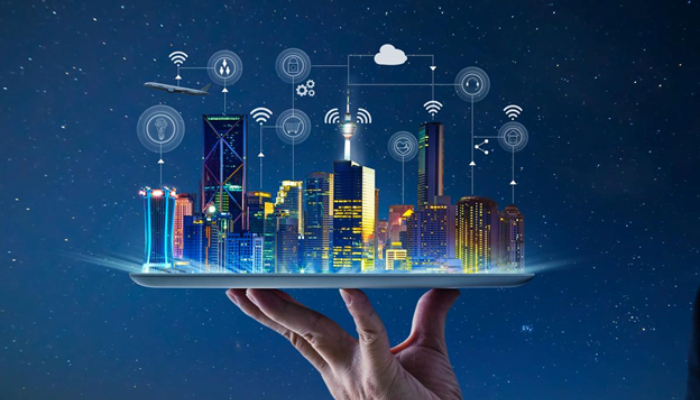In recent years, the concept of smart cities has gained significant attention, with the goal of creating more efficient, sustainable, and livable urban environments. The implementation of Internet of Things (IoT) technologies in urban and metropolitan cities is one of the most promising solutions for achieving these goals. In this article, we will explore the different smart city solutions based on IoT that can improve the quality of life for citizens, enhance public services, and promote economic growth.
Introduction to Smart City Solutions
A smart city is a city that uses technology to optimize and enhance the quality of life for its citizens. Smart city solutions include a range of technologies that can be used to make cities more efficient, sustainable, and livable. IoT is one of the most important technologies that can be used to create smart cities. IoT is a network of connected devices that can communicate with each other and exchange data over the internet. By using IoT technologies, cities can monitor and manage various aspects of urban life, including traffic, energy consumption, waste management, and public safety.
IoT-based Solutions for Smart Cities
Smart Transportation
- IoT-based traffic management systems
- Smart parking solutions
- Connected vehicles and intelligent transportation systems
Energy Management
- Smart grids and energy distribution systems
- IoT-based energy consumption monitoring and optimization
- Renewable energy integration
Waste Management
- Smart waste collection and recycling systems
- IoT-based waste management and monitoring solutions
Public Safety
- IoT-based surveillance and monitoring systems
- Emergency response systems
- Crime prevention and detection systems
Smart Buildings
- IoT-based building automation systems
- Energy-efficient buildings
- Smart home solutions
Urban Agriculture
- IoT-based urban farming solutions
- Smart irrigation and farming systems
- Vertical farming technologies
Water Management
- IoT-based water quality monitoring and management systems
- Smart irrigation systems
- Water conservation technologies
Benefits of IoT-based Smart City Solutions
IoT-based smart city solutions offer numerous benefits to cities, including:
- Increased efficiency and productivity in various sectors
- Enhanced public services, including better transportation, energy, waste, and water management
- Improved safety and security for citizens
- Greater sustainability and reduced environmental impact
- Increased economic growth and job creation opportunities
Challenges and Limitations
Despite the potential benefits of IoT-based smart city solutions, there are also several challenges and limitations that need to be addressed. These include:
- High costs of implementation and maintenance
- Privacy and security concerns related to the collection and use of personal data
- Lack of interoperability between different IoT devices and systems
- Lack of standardization and regulation in the development and deployment of smart city solutions
- Social and cultural challenges related to the adoption and use of new technologies
Conclusion
In conclusion, the implementation of IoT-based smart city solutions can significantly improve the quality of life in urban and metropolitan areas. By leveraging the power of advanced technology, cities can optimize their infrastructure, enhance public services, and create a more sustainable future. However, there are also challenges and limitations that need to be addressed in order to fully realize the potential of these solutions. Governments, businesses, and communities need to work together to overcome these challenges and ensure that IoT-based smart city solutions are accessible, equitable, and beneficial for all. With the help of high-speed internet and other technological advancements, smart cities of the future can become a reality.
FAQs
What is a smart city?
A smart city is a city that uses technology to optimize and enhance the quality of life for its citizens.
What is IoT?
IoT is a network of connected devices that can communicate with each other and exchange data over the internet.
How does IoT technology contribute to smart city solutions?
IoT technology can be used to monitor and manage various aspects of urban life, including traffic, energy consumption, waste management, and public safety.
What are the benefits of IoT-based smart city solutions?
IoT-based smart city solutions offer increased efficiency and productivity, enhanced public services, improved safety and security, greater sustainability, and increased economic growth and job creation opportunities.
What are some challenges and limitations of IoT-based smart city solutions?
Some challenges and limitations include high costs of implementation and maintenance, privacy and security concerns, lack of interoperability between different IoT devices and systems, lack of standardization and regulation, and social and cultural challenges related to adoption and use of new technologies.
Author
Brian Adams is a technology writer specializing in IoT, smart cities, and urban planning. He has over a decade of experience in the tech industry and has written extensively on the use of IoT sensors and data analytics to improve urban development.





